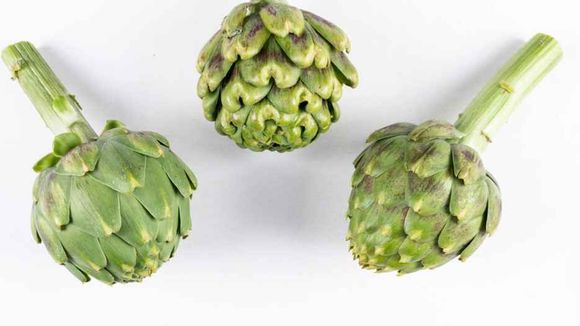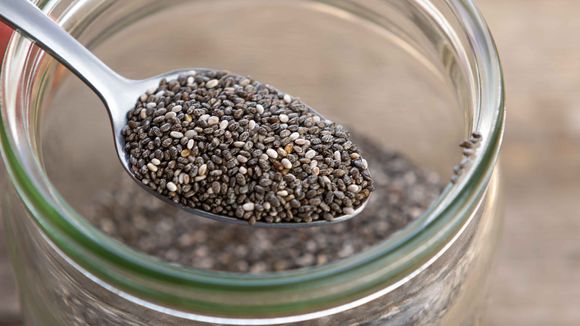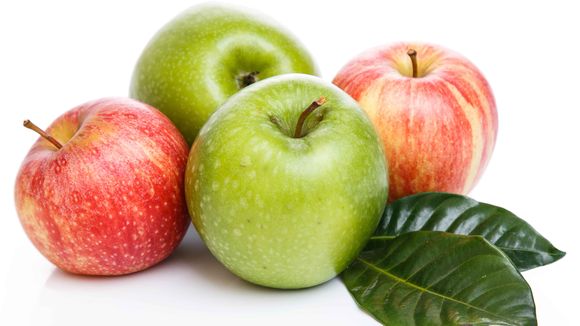Why is fiber important?
"Fiber" is a general term that applies to any type of carbohydrate that your body cannot digest. The fact that your body doesn't use fiber for fuel doesn't make it any less valuable to your overall health. You've probably heard of the digestive benefits of fiber, but they have others.
Dietary fiber can offer the following benefits when you consume it:
- Lowering cholesterol. The presence of fiber in the digestive tract can help reduce the absorption of cholesterol by the body. This is especially true if you are taking statins, which are cholesterol-lowering drugs, and using fiber supplements such as psyllium husk fiber. 1
- Promote a healthy weight. Foods high in fiber, such as fruits and vegetables, tend to be lower in calories. In addition, the presence of fiber can slow digestion in the stomach, promoting satiety.
- Adding mass to the digestive tract. People who suffer from constipation or a generally slow digestive tract may add fiber to their diet. Fiber naturally adds volume to stools and promotes regular bowel movements.
- Improve blood sugar control. The body may take longer to break down foods high in fiber. This helps to keep blood sugar levels more constant, which is especially beneficial for people with diabetes.
20 Foods High in Fiber
Pinto beans
Fiber: 15 grams per cup
Pinto beans (Phaseolus vulgaris Pinto Group) offer plenty of fiber to help you feel full longer. Pinto beans have a lot of fiber and are also a good source of protein. Add them to soups and stews, garnish salads with them or use them as a substitute for meat in taco or burrito.
Soya beans
Fiber: 11 grams per cup
Soybeans (Glycine max) are high in phytoestrogens, which can help relieve or reduce menopausal symptoms, such as hot flashes. Despite these positive effects, they should not be consumed in large quantities. Use them like any other beans or eat them as a snack.
Pears
Fiber: 5.5 grams in a medium-sized raw pear or 3.1 grams per 100 grams
Pear (Pyrus) is a popular fruit that is both delicious and nutritious. This is one of the best fruit sources of fiber.
Strawberries
Fiber: 3 grams in 1 cup of fresh strawberries or 2 grams per 100 grams
Strawberries (Fragaria) are a delicious, healthy fruit that can be consumed both fresh and frozen. Interestingly, they are also among the most nutrient-rich fruits you can eat. In addition, strawberries are very rich in vitamin C, manganese and various powerful antioxidants.
Avocado
Fiber: 10 grams in 1 cup of raw avocado or 6.7 grams per 100 grams
The avocado (Persea americana) is a unique fruit. Instead of being high in carbohydrates, it is rich in healthy fats. Avocados are very high in vitamin C, potassium, magnesium, vitamin E and various B vitamins. They also have many health benefits.
Apples
Fiber: 4.4 grams in a medium-sized raw apple or 2.4 grams per 100 grams
Apples (Malus domestica) are among the most delicious and filling fruits you can eat. They are also relatively high in fiber. There are many varieties of apples, both sweet and sour or mixed. You can eat them raw, in salads, cakes and smoothies.
Raspberries
Fiber: 6.5 grams per 100 g
Raspberries (Rubus idaeus) are very nutritious and with a very strong taste. They are loaded with vitamin C and manganese, as well as other antioxidants. They are also suitable for people with diabetes due to their low glycemic index.
Bananas
Fiber: 2.6 grams per 100 g
Bananas (Musa) are a good source of many nutrients, including vitamin C, vitamin B6 and potassium. A green or unripe banana also contains a significant amount of resistant starch, a type of indigestible carbohydrate that functions as fiber.
Carrots
Fiber: 2.8 grams per 100 g
The carrot (Daucus) is a root vegetable that is tasty, crunchy and very nutritious. It has a high content of vitamin K, vitamin B6, magnesium and beta carotene, an antioxidant that is converted to vitamin A in your body.
Beet
Fiber: 2.8 grams per 100 g
Beets (Beta vulgaris) is a root vegetable with a high content of various important nutrients, such as folate, iron, copper, manganese and potassium.
Beets are also packed with inorganic nitrates, which are nutrients that have been shown to have various benefits associated with blood pressure regulation and physical activity.
Broccoli
Fiber: 2.6 grams per 100 g
Broccoli (Brassica oleracea var. italica) is a type of cruciferous vegetable and one of the most nutrient-rich foods on the planet.
Broccoli is rich in vitamin C, vitamin K, folate, B vitamins, potassium, iron and manganese and contain antioxidants and powerful anti-cancer nutrients. More specifically we are talking about the isocyanates present in cruciferous vegetables, which exhibit chemoprophylactic effects through various mechanisms. 3
Currently, there is growing evidence that a phytochemical compound known as sulforaphane in these green leafy vegetables has been found to be an effective means in preventing and treating various types of cancer. These include prostate cancer, breast cancer, colon cancer, skin, bladder and oral cancer. This component is naturally present in broccoli sprouts, cabbage, cauliflower and garden cress.
Broccoli contains many active biochemicals such as carotenoids, vitamin C and glucosinates. One such compound is sulforaphane (SFN) (1-isothiocyanato-4-[methylsulfinyl] butane), which is derived from a precursor compound known as glucoraphanin (GPN). The conversion of GPN to SFN occurs during broccoli cutting or chewing, which exposes GPN to the action of the endogenous enzyme myrosinase.
Sulforaphane is one of the powerful anti-carcinogenic substances that works by increasing the levels of enzymes in the liver that counteract the carcinogenic effects of chemicals in food and the environment.
Artichoke

Fiber: 5.4 grams per 100 g
Artichokes (Cynara cardunculus var. scolymus) are rich in many nutrients and are one of the best sources of fiber in the world. It can be eaten lightly baked, in salads or stewed.
Brussels sprouts
Fiber: 3.8 grams per 100 g
Brussels sprouts (Brassica oleracea var. gemmifera) is a cruciferous vegetable that is associated with broccoli. It is very high in vitamin K, potassium, folate and powerful cancer-fighting antioxidants. These are phytochemicals with the potential to prevent cancer. These compounds strengthen the protection of antioxidants and DNA and promote healthy cell signaling. 4
These fantastic vegetables can reduce the risk of many diseases thanks to their content. Research has shown that the isocyanates in Brussels sprouts may help curb tumor growth by blocking aggressive enzymes known to accelerate cancer growth. Enzymes weaken genes that suppress tumors and prevent them from spreading.
Lentils
Fiber: 7.3 grams per 100 g
Lens (Lens culinaris) is an inexpensive food and among the most nutritious foods ever. It provides an excellent amount of protein and important nutrients, such as vitamin C, vitamin B, calcium, iron, magnesium and more.
Chickpeas
Fiber: 7 grams per 100 g
Chickpeas (Cicer arietinum) is another type of legume that is full of nutrients, including minerals and proteins. Chickpeas form the basis of humus, one of the easiest to prepare at home. You can spread it on a slice of bread, add it to salads, whole grain toast and more.
Quinoa

Fiber: 2.8 grams per 100 g
Quinoa (Chenopodium quinoa) is a pseudograin that has become incredibly popular among people who care about their health over the past few years. Quinoa is rich in many nutrients, including protein, magnesium, iron, zinc, potassium and antioxidants.
Oatmeal
Fiber: 10.1 grams per 100 g
Oats (Avena sativa) are among the healthiest grains on the planet. They are very high in vitamins, minerals and antioxidants. Oatmeal contains powerful soluble fiber called beta glucan, which has beneficial effects on blood sugar and cholesterol levels.
Almonds
Fiber: 13.3 grams per 100 g
Almonds (Prunus dulcis) are a popular type of nuts. They are very high in many nutrients, including healthy fats, vitamin E, manganese and magnesium. Almonds can also be turned into almond flour for baking with a dose of additional nutrients.
Chia seeds

Fiber: 34.4 grams per 100 g
Chia seeds are small black seeds that are extremely popular for breakfast. They are very nutritious, contain large amounts of magnesium, phosphorus and calcium. Chia seeds may also be the best source of fiber on the planet, which deserves first place in today's selection. 4
Dark chocolate
Fiber: 10.9 grams per 100 g
Dark chocolate is probably one of the most delicious sweets in the world. Dark chocolate is surprisingly high in nutrients and is one of the richest in antioxidants and nutrients on the planet. Therefore, the next time you visit the store, be sure to add this delicious dessert to the basket - it will bring you sweetness for the soul, but also health benefits, including fiber.









